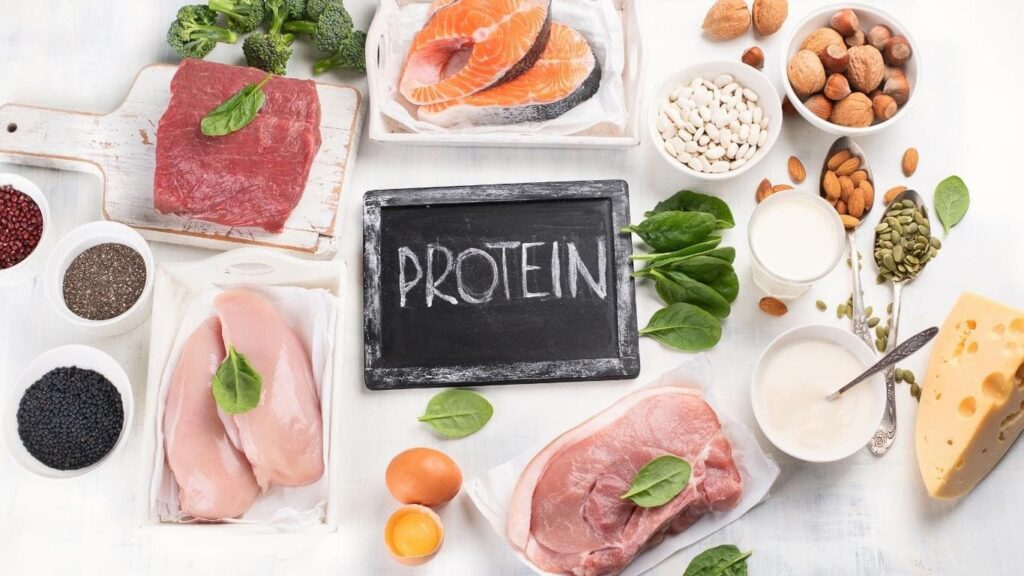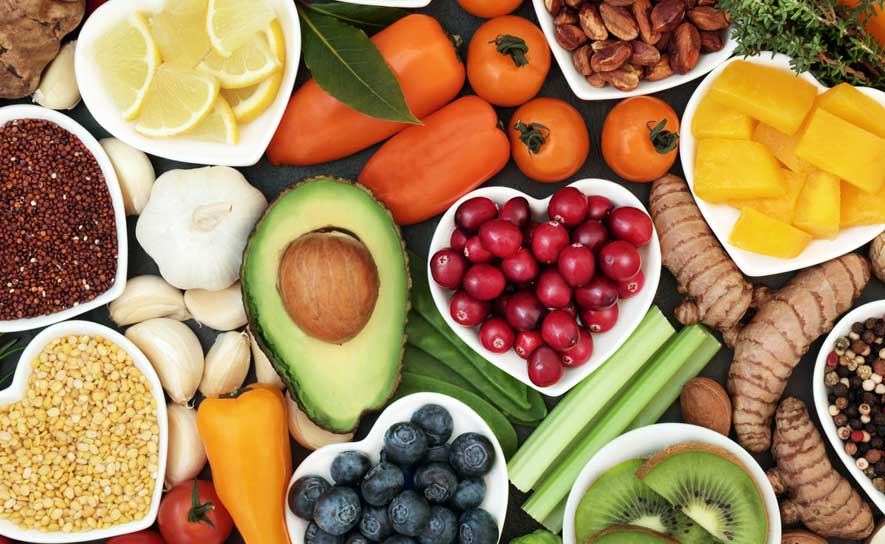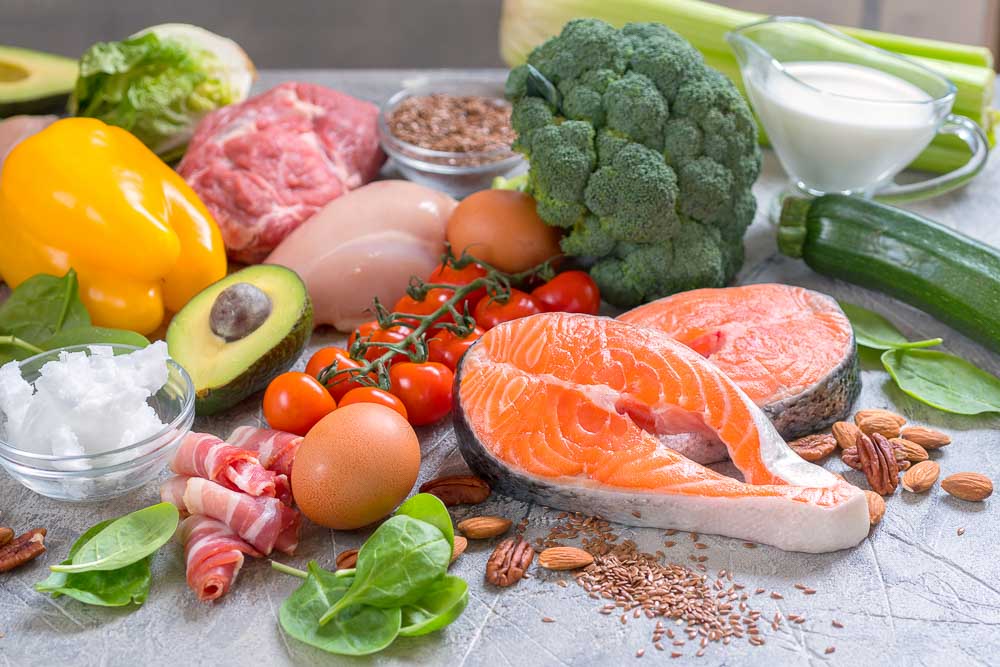As a swimmer, the right diet is crucial for achieving peak performance. The swimmer’s diet should provide the necessary energy, strength, and endurance required for this demanding sport. This article explores the essential components of a nutrition plan tailored for swimmers, offering valuable insights into what to eat to optimize your performance.
Key Takeaways
- Carbohydrates are the primary fuel source for swimmers, essential for sustaining energy during long training sessions.
- Proteins are crucial for muscle repair and growth, with a focus on lean sources like fish and poultry.
- Healthy fats, found in foods like nuts and seeds, support overall health and energy levels.
- A variety of vegetables and fruits provide necessary vitamins and minerals, aiding in recovery and overall well-being.
- Hydration is vital, and swimmers should ensure they consume adequate fluids before, during, and after training.
Carbohydrates
Carbohydrates are the powerhouse for swimmers, serving as the primary energy source to fuel both training and competitions. They are crucial for maintaining high-intensity performance and aiding in the recovery of normal muscle function after exhaustive physical activities.
Carbs can be split into two main types: simple and complex. Simple carbs, like fruits and honey, provide quick energy boosts, ideal for consumption right before or during a swim. On the other hand, complex carbs, found in whole grains and vegetables, offer sustained energy, making them perfect for regular meals.
For optimal performance, it’s essential to balance your intake of both types of carbohydrates, adjusting the amounts based on your training intensity and duration.
Here’s a quick guide on how much carbs to consume:
- 3 to 6 grams per kilogram of body weight
- Adjust based on activity level
Remember, the right mix of carbs helps in muscle repair and boosts overall performance, making them a staple in any competitive swimmer’s diet.
Proteins
Proteins are like the building blocks of your muscles—essential for any swimmer looking to improve strength and recovery. Composed of amino acids, proteins are crucial for muscle repair and growth. It’s not just about piling on any protein; the quality and timing of protein intake can significantly impact your performance and recovery.

Protein
Protein is an essential macronutrient that helps in muscle maintenance and repair, especially vital after those intense swim sessions. While proteins are not primarily used as fuel, they play a critical role in building muscle mass and aiding recovery.
Here’s a quick look at some protein-rich foods and snacks that can be part of a swimmer’s diet:
- Protein bars (All types, including snacks and cookies)
- Protein-rich foods (Smoothies, nut butters, breakfast options)
- Supplements (Creatine, BCAA, EAA, Glutamine, L-Carnitine)
Remember, distributing protein intake throughout the day helps in continuous muscle repair and growth, making it a staple in a swimmer’s diet.
Healthy Fats
Healthy fats are not just good; they’re essential for swimmers who need to maintain energy levels and support overall health. Incorporate monounsaturated and polyunsaturated fats into your diet to benefit from their heart-healthy and inflammation-reducing properties. Here’s how you can balance your fat intake:
- Aim for 0.5 to 1 gram of fat per kilogram of body weight daily.
- Prioritize sources like avocados, nuts, and fatty fish.
- Avoid trans fats found in processed foods as they can harm your heart health.
Remember, not all fats are created equal. Choose your fats wisely to support your swimming performance and overall wellness.
Vegetables
Vegetables are a powerhouse of nutrients and are crucial for a swimmer’s diet. They provide essential vitamins and minerals that help in muscle recovery and maintaining overall health. Incorporating a variety of vegetables can ensure that you’re getting a broad spectrum of nutrients.
Here are some top picks for swimmers:
- Spinach: Rich in iron and helps in oxygen transport.
- Carrots: High in beta-carotene, which is good for vision.
- Broccoli: Packed with vitamin C, which aids in repairing body tissues.
Remember, while raw veggies are packed with nutrients, they are best consumed after swimming sessions to avoid any digestive discomfort.
Including these vegetables in your meals can significantly enhance your performance and recovery times.
Fruits
Fruits are not just a sweet treat; they’re a powerhouse of energy and nutrients essential for swimmers. Packed with natural sugars, vitamins, and water, fruits help in quick energy replenishment and hydration. Bananas, grapes, and apples are perfect for a quick snack between races due to their portability and ease of consumption. Dried fruits like raisins and apricots offer a concentrated energy source, making them ideal for longer events.

Fruit for swimmer
Remember, while fruits are beneficial, they should be consumed in moderation to avoid excessive sugar intake.
For a swimmer, incorporating fruits into meals can be as simple as adding them to cereals or yogurt, or having them as a fresh dessert post-meal. Here’s a quick list of fruits to include in a swimmer’s diet:
- Bananas: Instant energy boost
- Apples: Rich in fiber
- Oranges: High in Vitamin C
- Berries: Antioxidants for muscle recovery
- Dried fruits: Long-lasting energy
Read more: Essential Swim Nutrition Tips for Peak Performance
Whole Grains
Whole grains are a powerhouse of nutrition and an essential part of a swimmer’s diet. They provide sustained energy, which is crucial for long training sessions and competitions. Incorporating whole grains into your meals can help maintain energy levels throughout the day.
Here’s a quick guide on how to integrate whole grains into a swimmer’s diet:
- Breakfast: Start with oats or whole-grain bread. Oats are a fantastic choice as they are high in fiber and can help you feel full longer.
- Lunch: Opt for sandwiches or wraps using whole grain bread or tortillas. Adding quinoa or brown rice to your salads can also boost your intake.
- Dinner: Include a serving of brown rice, barley, or whole-wheat pasta. These options not only add a nutritional punch but also help in muscle recovery post-training.
Whole grains are not just about carbs; they also provide essential vitamins and minerals that support overall health and performance.
Vitamins
Vitamins are crucial for swimmers to maintain peak performance and ensure a quick recovery. They play a significant role in energy production, muscle repair, and overall health. Here’s a quick rundown on some essential vitamins:
- Vitamin D: Essential for calcium absorption and bone health. Swimmers need strong bones to withstand the pressures of the water. Aim for 1000-2000 units daily.
- Vitamin C: Helps reduce oxidative damage and supports the immune system. About 500mg per day post-exercise can help keep those colds at bay.
Remember, while supplements can be helpful, getting your vitamins from natural food sources is always best. This ensures you’re not just getting the vitamins but also the full range of nutrients that come with them.
Minerals
Minerals are like the unsung heroes in a swimmer’s diet, playing crucial roles in everything from muscle function to maintaining electrolyte balance. Magnesium, calcium, and potassium are particularly important for swimmers. Magnesium helps keep the electrolyte balance in check, while calcium is essential for normal muscle function and neurotransmission. Potassium supports both muscle function and the nervous system.
Maintaining a proper balance of these minerals can help prevent cramps, fatigue, and impaired performance during long and intense training sessions.
Here’s a quick rundown on why these minerals rock:
- Magnesium: Keeps the electrolytes balanced, so you’re less likely to cramp up.
- Calcium: Essential for muscle contractions and sending nerve signals.
- Potassium: Helps your muscles and nerves function properly.
Ensuring these minerals are included in your diet can significantly impact your swimming performance and overall health.
Lean Meats
Lean meats are a powerhouse when it comes to fueling swimmers for both training and competition days. They are packed with high-quality protein which is crucial for muscle repair and growth. Incorporating lean meats like chicken, turkey, and lean cuts of beef into your diet ensures that your muscles recover faster and grow stronger, making you ready for your next swim.

Lean meats
Recommended Lean Meats for Swimmers
- Chicken breast
- Turkey breast
- Lean ground turkey
- Lean cuts of beef (e.g., sirloin)
Lean meats not only support muscle recovery but also provide essential nutrients such as iron, zinc, and B vitamins which are vital for energy production and overall health. For swimmers, maintaining a diet that includes these meats can significantly enhance performance and endurance.
Fish
Incorporating fish into a swimmer’s diet can be a game-changer, especially when it comes to recovery and maintaining lean muscle mass. Fish are a fantastic source of high-quality protein and omega-3 fatty acids, which are crucial for reducing inflammation and improving heart health. Salmon, mackerel, and sardines are top picks due to their high omega-3 content.
Fish not only supports muscle repair but also plays a vital role in cardiovascular health, which is essential for swimmers who engage in intensive training.
Here’s a quick look at some beneficial fish types and their perks:
- Salmon: Rich in omega-3s, great for joint health and recovery.
- Mackerel: High in vitamin D and omega-3s, supports immune function.
- Sardines: Loaded with calcium and vitamin B-12, excellent for bone health.
- Tuna: A lean option that’s good for muscle building.
Including these fish in your diet a few times a week can significantly enhance your swimming performance and overall health.
Dive into the fascinating world of aquatic life with our latest article, ’10. Fish’. Explore the myriad species that thrive beneath the waves and understand their crucial role in marine ecosystems. For more insightful articles and resources, swim over to our website and join our vibrant community of marine enthusiasts and conservationists.
Conclusion
So there you have it, the ultimate guide to the best diet for swimmers aiming to excel. Remember, it’s not just about the food you eat, but also when and how you eat it that can make a big difference in your performance. Keep your meals balanced with plenty of carbs for energy, proteins for muscle recovery, and don’t forget to hydrate! Whether you’re training for a competition or just swimming for fun, fueling your body right will help you glide through the water with more power and endurance. Dive into these tips, tweak as necessary, and watch your swimming prowess soar!
Read more: Diving into Health: Essential Nutrition Tips for Young Swimmers
AUTHOR
Sang Nguyen
Sang Nguyen is a former national swimmer for Vietnam who has transitioned into coaching. With a passion for fostering a healthy swimming community and connecting like-minded individuals,......Read More
BLOG
Maybe You Are Interested
Good Swim Meet Snacks: What to Eat for Optimal Performance
Good nutrition is crucial for swimmers to maintain energy, recover quickly, and perform at their...
Read More...Optimizing Your Performance: The Best Diet for Swimming Training
Optimizing your performance in swimming is not just about rigorous training; it’s equally crucial to...
Read More...Achieve Peak Performance with This Diet Chart for Swimmers
Whether you’re a novice or an expert swimmer, understanding the right diet is crucial for...
Read More...Eating Like a Champion: Exploring the Diet of Michael Phelps
Michael Phelps, renowned for his Olympic triumphs, has a diet as extraordinary as his swimming...
Read More...Muscle Gain for Swimmers: Tailoring Your Diet for Strength
Swimming is a demanding sport that requires a tailored approach to nutrition to support muscle...
Read More...A Comprehensive Diet Plan To Gain Weight For Swimmers
Swimming is a demanding sport that requires meticulous attention to nutritional needs to optimize performance,...
Read More...